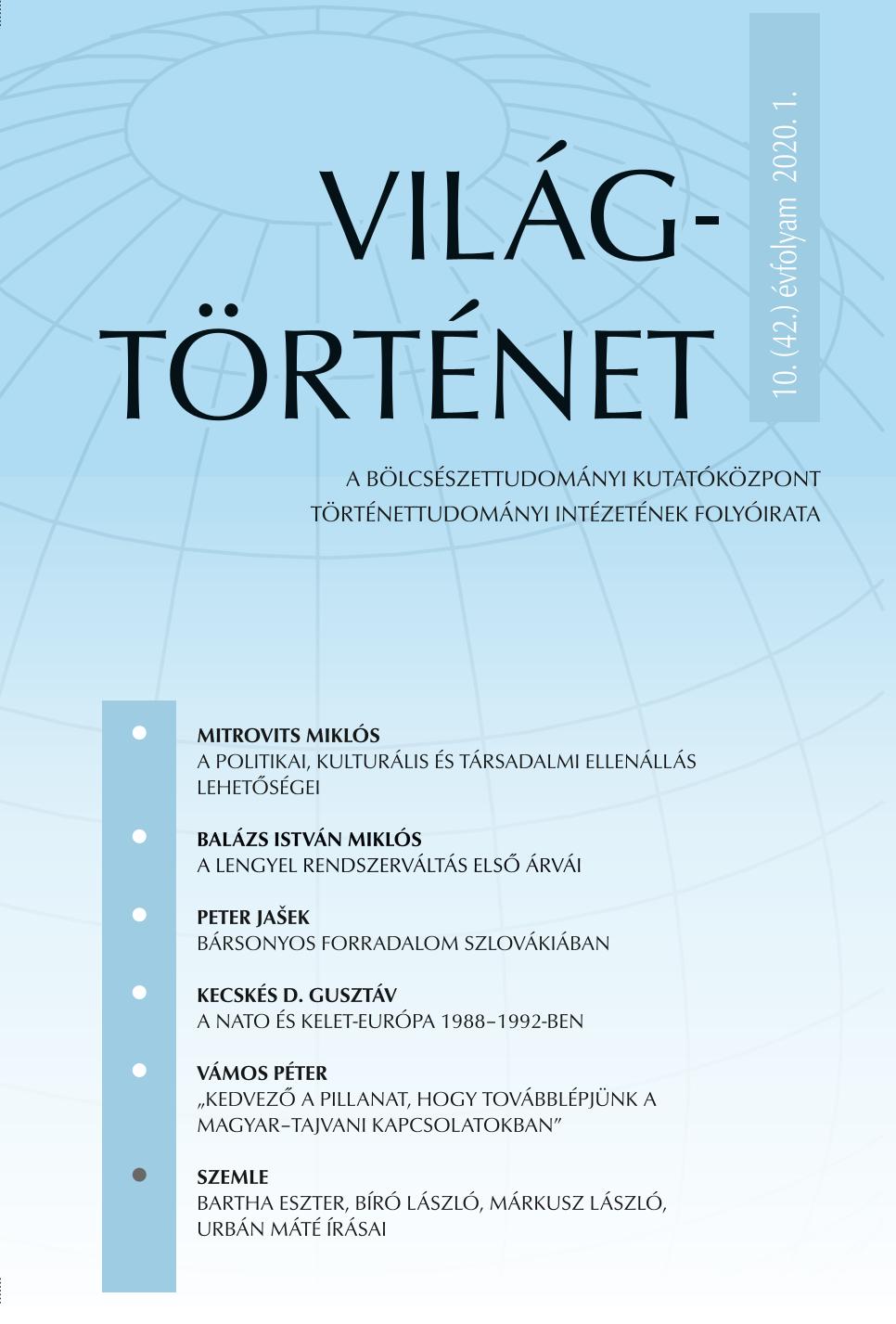„Kedvező a pillanat, hogy továbblépjünk a magyar–tajvani kapcsolatokban.” A budapesti Tajpej Kereskedelmi Iroda megnyitása
“This is a Favourable Moment for Us to Move Forward with Hungarian–Taiwanese Relations”: The Opening of the Taipei Trade Office in Budapest
Author(s): Péter VámosSubject(s): Post-Communist Transformation
Published by: Magyar Tudományos Akadémia Bölcsészettudományi Kutatóközpont Történettudományi Intézet
Summary/Abstract: In the spring of 1990, the first Taiwanese representation in Eastern Europe was established in Budapest. The present study examines the process and international context of Hungarian– Taiwanese bilateral negotiations leading to the opening of the Taipei Trade Office. First, the article reviews the international relations of the Taipei government and the relationship between Taiwan and communist China during the Cold War. This is followed by the detailed analysis of the process and outcome of Hungarian–Taiwanese negotiations, based, primarily, on Hungarian archival documents. Hungarian politicians in their dealings with Taiwan always had to take into account China’s political sensitivities and the possible consequences of their actions on Sino–Hungarian relations. In the second half of the eighties, therefore, Hungary regarded Taiwan only as a trading partner. The process leading to the opening of the Taipei Trade Office began with the democratization of political life in Taiwan in 1987 and the subsequent opening toward Eastern European socialist countries. When the Taipei leadership, seeking broader international recognition, initiated bilateral talks with Hungary, Hungarian leaders focused on the development of trade relations only. The summer of 1989 marked a turning point in Sino–Hungarian relations. The consequences of the Tiananmen Square massacre in China’s domestic situation and international position and the possibility of a systemic change in Hungary affected Sino–Hungarian political relations and the scale of Hungarian–Chinese bilateral trade. This, in turn, encouraged the Hungarian leadership to embark on negotiations leading to the establishment of Taiwanese representation. Although outright political recognition was out of question, the endorsement of the establishment of a semi-official Taiwanese representative office in Budapest was a bold decision. In the autumn of 1989, the Hungarian leadership urged economic contacts with Taiwanese investors and financial institutions because economic liberalization in Hungary resulted in a financial crisis and in Budapest’s view Taiwanese investment and financial assistance could contribute to easing the situation. The Taiwanese side, in exchange for greater international visibility, was willing to engage in financial cooperation.
Journal: Világtörténet
- Issue Year: 2020
- Issue No: 1
- Page Range: 99-118
- Page Count: 20
- Language: Hungarian

